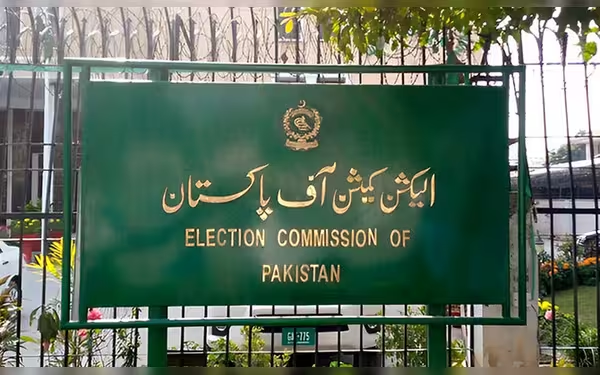Saturday, November 16, 2024 03:22 PM
ECP Rejects PTI Intra-Party Election Petitions
- ECP dismisses PTI's four petitions on intra-party elections.
- PTI instructed to seek judicial intervention for confiscated documents.
- ECP emphasizes legal compliance for political parties.
 Image Credits: gnnhd
Image Credits: gnnhdECP rejects PTI's petitions on intra-party elections, emphasizing legal compliance and instructing judicial intervention for confiscated documents.
In a significant development for the political landscape of Pakistan, the Election Commission of Pakistan (ECP) has decisively rejected all four petitions submitted by the Pakistan Tehreek-e-Insaf (PTI) regarding intra-party elections. This ruling comes as a crucial moment for the PTI, as it navigates the complexities of its internal electoral processes.
The ECP's decision, articulated in a comprehensive 10-page document authored by Sindh member Nisar Durrani, underscores the Commission's commitment to upholding the legal framework governing political parties. Among the petitions dismissed was PTI's challenge to the ECP's jurisdiction over intra-party elections, which the Commission firmly rejected. Furthermore, the request to postpone the decision concerning reserved seats in the intra-party elections was also turned down.
In a noteworthy directive, the ECP instructed the PTI to seek judicial intervention regarding the return of documents that were confiscated from the party's office by the Federal Investigation Agency (FIA). This aspect of the ruling highlights the ongoing tensions between the PTI and state institutions, as the party grapples with legal challenges on multiple fronts.
The judgment referenced Section 208 of the Election Act 2017, emphasizing that it is the ECP's duty to ensure that the legal requirements for intra-party elections are met. This legal framework is essential for maintaining the integrity of political processes in Pakistan, ensuring that parties operate within the bounds of the law.
It is important to note that on August 27, the ECP had previously reserved its decision on PTI's request to delay proceedings until the Supreme Court provided clarification on the matter. This indicates a careful and measured approach by the ECP, as it seeks to balance the interests of political parties with the need for legal compliance.
As the political environment in Pakistan continues to evolve, the implications of this ruling could be far-reaching. The PTI, as one of the major political parties in the country, must now reassess its strategy in light of the ECP's firm stance. This situation serves as a reminder of the importance of adhering to legal protocols within political parties, as failure to do so can lead to significant setbacks.
The ECP's rejection of PTI's petitions not only reinforces the Commission's authority but also sets a precedent for how intra-party elections should be conducted in Pakistan. As political dynamics shift, it will be crucial for all parties to remain vigilant and compliant with the law, ensuring that democracy in Pakistan continues to thrive.













